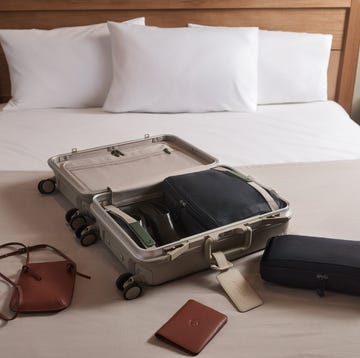‘I’m staying with friends,’ I say breezily to the chatty taxi driver who asks what hotel he should take me to. It’s not a lie. The truth, albeit shielded by two purposeful omissions, is that I’ve never met the friends, nor are they home. ‘I’m staying at the empty flat of people I’ve never met’ just doesn’t have the same ring to it. What I am doing is home swapping, my preferred choice when holidaying.
It’s as simple as it sounds: staying in someone’s house or flat while they stay in yours, at essentially no cost to either party other than a cleaning fee. This low-cost accommodation option has opened up the world for me without requiring me to open my wallet to the same magnitude.
Recently, I calculated that I’ve saved £14,000 over the past three years by staying in home swaps instead of hotels. My vehement support of flat swapping has turned even its most ardent sceptics (namely, my parents) into unlikely aficionados. Last autumn, we stayed in a gorgeous Upper East Side townhouse for a quarter of what a budget hotel would have cost. It’s safe to say that they’re now very much on board with the premise.
What's everyone reading?
While the financial perks are obvious, the greatest perk has less to do with cold, hard cash and everything to do with warm, fuzzy feelings. As much as it’s an economic practice, swapping homes is an empathetic one. In the simplest sense, letting someone into your space requires a great deal of trust.
That said, knowing that a stranger is going to lounge on your sofa, eat from your plates and sleep in your bed requires more than trust alone. Perhaps it takes a bit of delusional belief that, overall, people are good and will do the right thing when prompted – and by the ‘right thing’ I mean not wearing shoes on your beige carpet, obviously. It’s a true test: do you treat a stranger’s home how you’d want them to treat yours?
With this in mind, it feels like platforms such as HomeExchange.or Kindred – my go-to app for home swaps – have been engineered to elicit human goodness. With prompts to write welcome notes for guests, leave thank-you gifts for hosts and generally treat the space with the utmost care, they’re reminding people how to be kind strangers.
While it’s obviously good for business, it makes for a more memorable experience, too. In New York City last year, a couple left me and my husband two tickets to a comedy show, locally famous Levain cookies and a handwritten guide to their favourite spots on the Upper East Side. You better believe I stripped my sheets and didn’t leave crusty dishes in the sink. Impersonal, high-tech hotels and passive-aggressive cleaning-fee charges on Airbnb felt like a distant memory; this was someone’s real home.
Instead of a subletter, I’ve started to think of myself as a steward. How can I be a great guest? As such, I’ve come to take a certain pride in my thank-you gifts. A beautifully wrapped box of four Marchesi chocolates in Milan was a highlight and, not to toot my own horn, but I did leave a gift card for the organic-wine store where my hosts bought their wedding wine from in London.
As a host, I try to embody my best bed-and-breakfast-owner persona. I fluff pillows, get fresh flowers and think hard about which local coffee shop or bakery they, in particular, might like. On the day my guests are due, I wait anxiously to hear that they’ve got into the flat okay, sometimes setting an alarm for the middle of the night if we’re in different time zones.
I treat my swappers with the same care I would a good friend, because I know they’d do the same if the situation was reversed. If I were to weigh up the merits of home swapping, I’d say more meaningfully than relieving me of the financial burden of travel, it’s given me a renewed faith in human kindness. To walk in someone else’s shoes, maybe you simply need to sleep in their bed.












